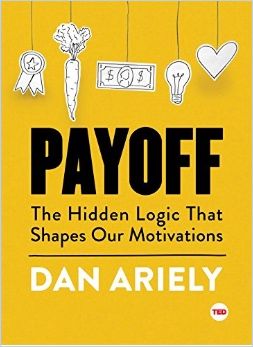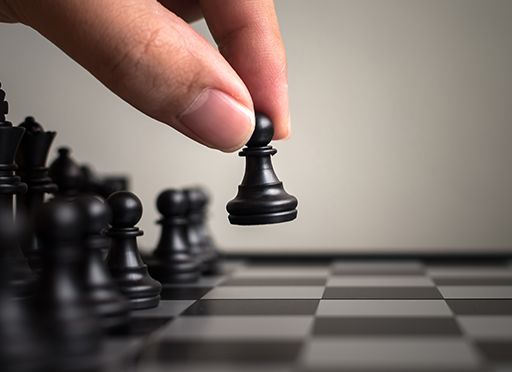Best-selling author Dan Ariely reflects on his struggles with pain to offer insight into motivation.

Why You Do What You Do
Dan Ariely is the James B. Duke Professor of Psychology and Behavioral Economics at Duke University where he founded and directs the Center for Advanced Hindsight. He suffered catastrophic burns as a teen, and reflecting on his ordeal as a “pain person” – one who knows, feels and thinks only pain – led him to consider motivation, its sources, its mysterious nature, and what inspires or impedes it.
Ariely’s brief meditation – full of engaging anecdotes and weirdly inconclusive lab experiments – offers a charming discussion of the unknowability of motivation. He writes movingly and with great originality about connection, psychology, the humane workspace and the human experience.
A “Pain Person”
As a teenager, Dan Ariely suffered burns across 70% of his body. He spent three years in the hospital undergoing grueling therapy. He became what hospital staff members call a “pain person” – someone who knows, feels and thinks only pain. The burns destroyed his skin, so each day nurses had to remove bandages from the raw flesh, rub away dead tissue until Ariely bled to enable new growth and put on new bandages. He anticipated surgery as a relief because the anesthesia freed him from the pain. His depictions of these rituals – though told without self-pity – prove truly horrible and will be difficult for some readers to stomach.
Many of our motivations spring from trying to conquer a sense of helplessness and reclaim even a tiny modicum of control over our lives. Dan Ariely
Ariely tells of the first time saw himself in a mirror after his injury. His bandaged arms hung “lifelessly.” His swollen face was “blue, red and yellow.” After reflecting on all the unpleasant therapies he underwent for many years, Ariely posits that a lot of human motivation stems from trying to overcome helplessness and seize even a tiny amount of control over the events in your life.
Motivation
Ariely contends that exploring motivation means exploring almost everything people try to do and almost every urge that fuels them to do it. Yet, he finds no unifying answer that explains motivation.
Money is seldom a primary motivator; in fact, monetary rewards can decrease motivation. Someone’s indifference, disapproval or hostility toward your efforts can cripple your motivation, while acknowledgment, ownership and achievement spur it.
Any incentive is better than no incentive, and the types of incentives…(money, pizza and a compliment) weren’t very different from one another.Dan Ariely
When people disengage from work, they suffer negative motivation. For example, one company inadvertently fueled negative motivation by giving each employee a number signifying his or her place in the company hierarchy. The company used this ranked list as its internal communications directory. This decreased motivation by making people’s relative status the dominant aspect of their communications.
Effort Brings Ownership
In the 1940s, P. Duff and Sons started selling boxed cake mixes. The company’s ads boasted that to bake a cake with its mix, a housewife needed to add only water. The cake mixes sold poorly because baking the cakes was too easy. Customers missed the sense of ownership they felt from being hands-on bakers and crafters.
People dramatically underappreciate the extent and depth to which a feeling of accomplishment influences people.Dan Ariely
Duff’s new cake mixes, which required customers to add milk and eggs, were a hit. Ariely contends the Duff story exemplifies how an investment of time and energy generates a motivating sense of possession.
Bonuses
Ariely worked with an HR executive at Intel to determine which rewards motivate employees the most. They rewarded productivity with money, pizza or praise from the boss. Some employees received no bonus at all.
Intel managers predicted that money, then pizza and then a compliment would inspire the greatest productivity. Instead, pizza generated the most motivation – followed by a compliment. Cash came in third, which suggests that any motivation is better than none and various kinds of motivation vary little in effectiveness.
However, the day after the test bonuses, those who had been offered money proved less productive than those who had been offered nothing. The employees’ thinking seemed to be that they’d worked harder than usual to gain the previous day’s bonus, but wouldn’t get anything today, so they could do less. After a week, those first offered money showed considerably less productivity. Those who got compliments the first day drifted back to the norm. Those offered pizza performed in the middle range between those receiving cash or compliments.
Adding money to the equation can backfire and make people less driven.Dan Ariely
Ariely and his research partners told Intel’s top managers that they were paying cash for less effective performance.
They discovered that when people lose themselves in their job, they find joy. But when people consider their work before they do it, they motivate themselves by thinking of “extrinsic motivators,” such as salary or bonuses. Ariely also found that employees lack the ability to say ahead of time what will motivate them.
Relationships
Ariely reports that people don’t regard their emotional relationships as transactional. When people “invest fully” in love, the result is a powerful bond. Love begets more love and greater motivation to give and receive more love.
Managers should focus on the things that really motivate people and bond them to their work, such as meaning, connection, challenge and engagement. As people achieve credit and acknowledgment for their efforts, they gain motivation and happiness.
When partners are in a successful relationship, each strengthens the other, and everyone in their circle benefits.Dan Ariely
A long-term commitment motivates you to invest more love, trust, energy and time in a relationship. Companies must inspire similar long-term investment by offering workers education, medical benefits and activities that fuel their well-being. Companies also can motivate their employees by providing clear, codified routes to promotion and professional growth.
Greatest Hits
This compilation, which is a medley of Ariely’s greatest hits, offers worthwhile insights and illuminating experiments. It best serves those who are new to Ariely’s work and those who might have enjoyed one of his other books and seek an overview. His greatest gift is the down-to-earth humanity of his perspective and his dominant theme: that people are human, unpredictable and seldom know themselves or understand why they do what they do and want what they want.
The moment we add money as a motivator in romantic relationships, only bad things can come of it. Dan Ariely
His affectionate, forgiving depiction of this confusion – from which he does not exclude himself – generates his readers’ loyalty and his consistent sales. Though superficially inconclusive regarding which employee motivators prove most effective, Ariely paints a rich portrait of human processes.
Dan Ariely’s bestsellers include Predictably Irrational, The Upside of Irrationality, Amazing Decisions and The (Honest) Truth About Dishonesty.





